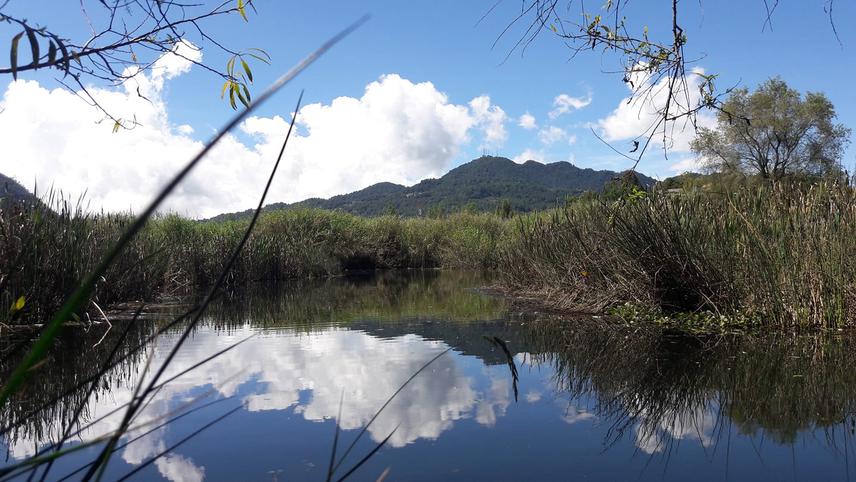Juan Arturo Mendoza Ramirez
This project will address the conservation of La Kisst and Maria Eugenia Mountain Wetlands (both Ramsar Sites), located in the River Basin of Valle de Jovel, in Southern Mexico, through the integration of local stakeholders in the policy cycle and the promotion of education and awareness in the region.
Due to these habitats are in the middle of a fast-growing city, human activities such as deforestation, urbanisation, agricultural expansion, land-use change, and pollution have decreased them. In this regard, this work aims to produce a public policy proposal that prioritises the conservation of the Ramsar Sites for the best allocation of natural resources in the region, and a programme of workshops for a wider public about the vital role that the mountain wetlands' natural services provide for the entire catchment area.

Part of La Kisst Mountain Wetland. © Abenamar Perez Mendez
The complexity of social-ecological systems suggests the importance of the inclusion of stakeholders in the achievement of adaptive governance and co-management of the mountain wetlands, through activities that support the sharing of knowledge and experiences, rooted in favourable conditions for the cultivation of a culture of mutual respect, collaboration, trust and fairness.
In that sense, the current project goals are as follows:
1. To identify, using the qualitative Geographic Information System (GIS), the current extent of the mountain wetlands.
2. To analyse the main economic, social, and environmental factors that influence stakeholder participation inside the River Basin Committee of Valle de Jovel, for the conservation of the mountain wetlands.
3. To integrate, using Thematic Analysis, the data provided by the application of the research techniques to design conservation actions for the best allocation of limited natural resources in the study area.
4. To present a coherent public policy proposal to the River Basin Committee of Valle de Jovel, that prioritises the conservation of the mountain wetlands for the best allocation of natural resources in the region.
5. To run a programme of workshops for a wider public aimed to promote education and awareness of the vital role that the mountain wetlands' natural services provide for the balance of related ecosystems, the support of diverse and endemic flora and fauna, and human livelihoods inside the catchment area.